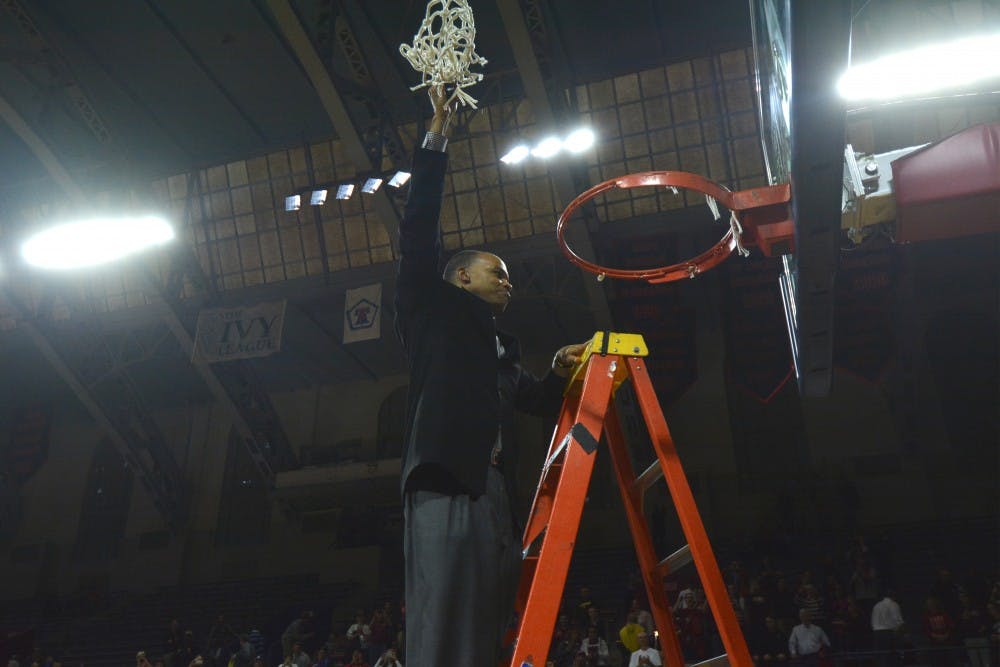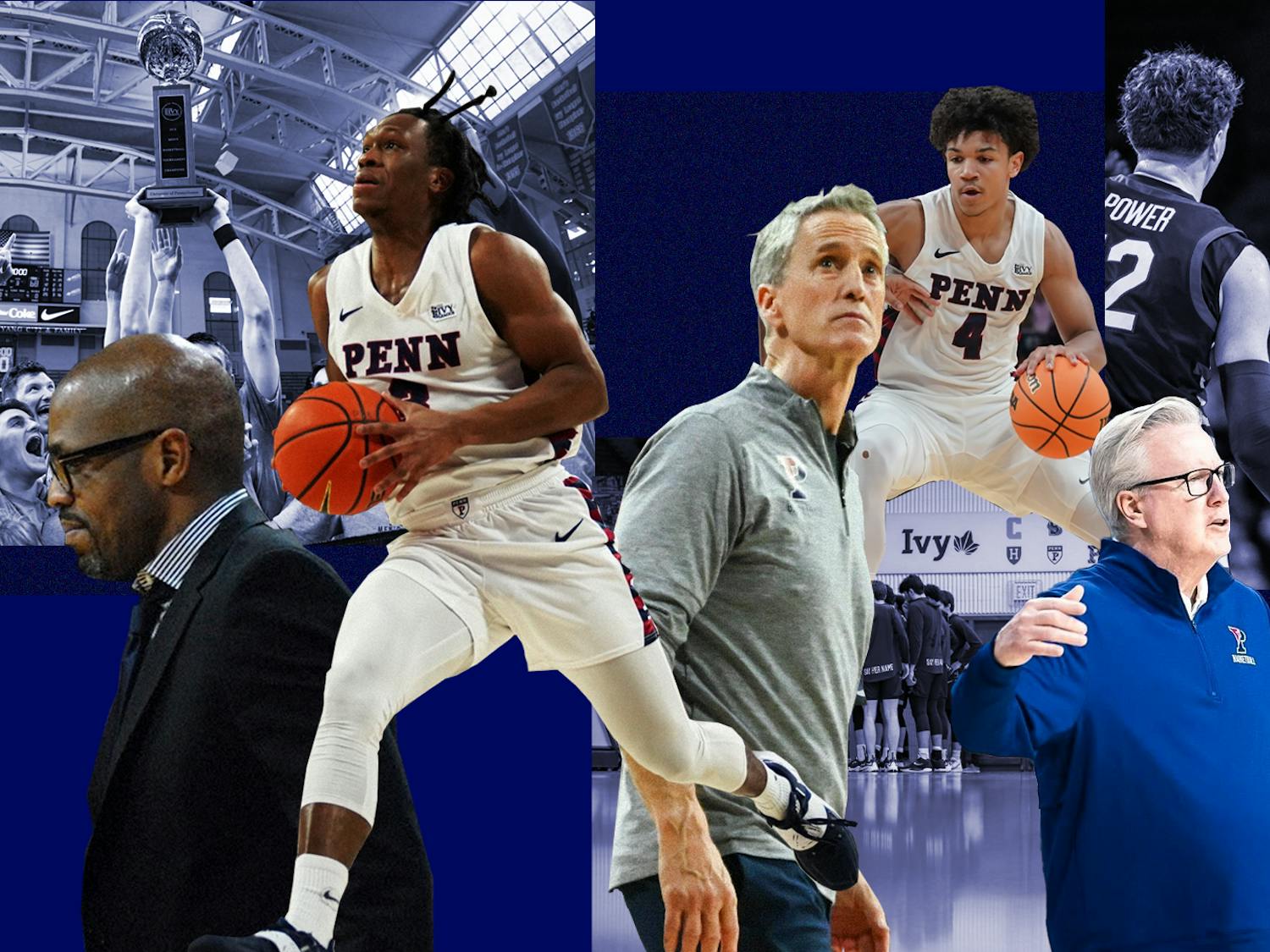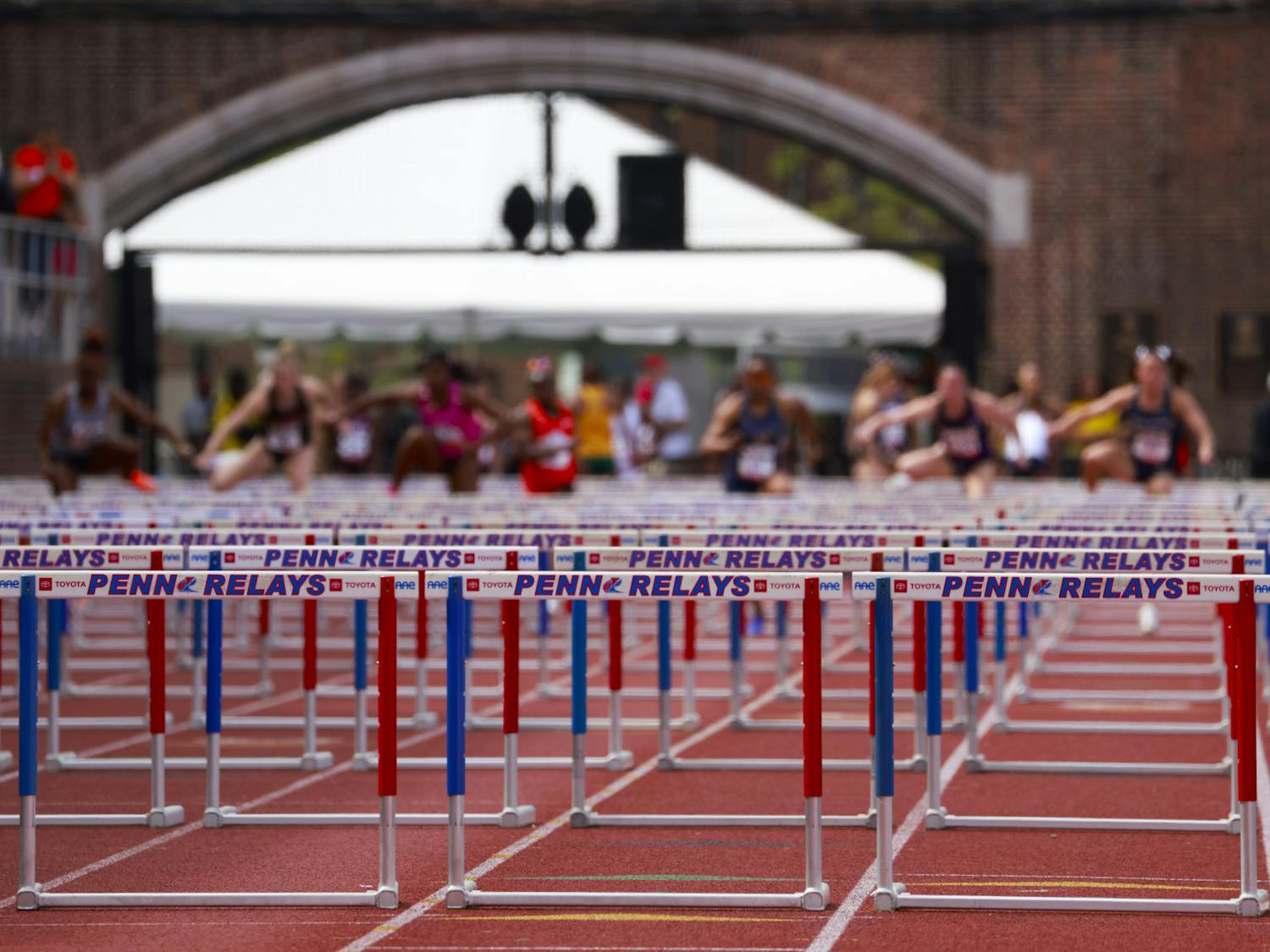"Don’t mistake activity for achievement.”
There are quite a few John Wooden-isms that I have come across throughout my life, but few have spoken to me quite as loudly as that one. After all, it’s easy for people — especially in unfamiliar settings, circumstances requiring a different and difficult sort of activity — to mistake simply doing something for tangible success.
The Ivy League currently finds itself in one of these predicaments, as the athletic directors and university presidents of the conference’s eight schools explore the possibility of adding a postseason basketball tournament to determine which team secures an NCAA Tournament berth each March. Unfortunately for them, doing so would be an errant decision, an unwise mistake of perceived activity in the hope of achievement.
Why do we need an Ivy League tournament? I mean, really, why?
Some might argue that, as the only conference in Division I basketball without a postseason tournament, the Ancient Eight lags behind every other group of teams in the country. Consequently, one could say that the Ivy League has struggled to compete for relevancy of late because it does not have a conference tournament aired and overlooked on ESPN2 each year at best.
Since the end of Penn and Princeton’s perpetual dominance of the conference a decade ago, the Ivy League has been decidedly different. But is it actually struggling?
Think about it: For every Davidson in 2008, there was also Cornell in 2010. For every Florida Gulf Coast in 2013, there was also Harvard in 2014.
With that in mind, does the Ancient Eight really need to sacrifice wins or competitiveness from its best team in the NCAA Tournament — as embodied by the Crimson in recent years — for the potential infusion of cash and, maybe, slight television exposure from a potential conference tournament?
Realistically, there are two options in play here for the Ivy League: A playoff with all eight teams either at the top-ranked squad’s venue or the hallowed halls of the Palestra; or, a tournament featuring the conference’s four best teams, again likely to take place on Penn’s campus.
If the league’s university presidents did opt for the first option, there is absolutely no question that the programs’ regular season contests would be rendered irrelevant. Suddenly, those Penn-Princeton games on March 8 — the ones that have historically decided which team goes to the NCAA Tournament on both the men’s and women’s side — mean a hell of a lot less when the two could face off yet again a week later in a conference tournament.
The Ivy League has branded its conference matchups throughout the year on social media as part of a ”#14GameTournament.” Because there’s nothing meaningful after the regular season for seven of the league’s teams, every single game matters if you want to play in the postseason.
But with an eight-team tournament, guess what: The Ancient Eight loses all incentive to play back-to-back games every weekend or to promote them as anything important. The downside to that, of course, is that what makes the Ivy League special is those weekends. Anyone can beat anyone, and an untimely loss can seriously derail any program’s shot at making the postseason.
You know what that system that is already in place sounds a like? By God, it sounds like a postseason tournament.
On top of delegitimizing the Ancient Eight’s regular season, a conference tournament also blatantly threatens the league’s potential success in the NCAA Tournament. Imagine if last year’s 9-19 Penn crew represented the Ivy League instead of a Harvard squad that almost knocked off North Carolina? The results could be disastrous.
To be fair, a four-team tournament is more plausible, in that it eliminates the potential for a blatantly terrible team to win the title. But it is still a bad idea.
In the Ivy League, there are four teams on whom the conference’s athletic directors can bank on from a basketball standpoint: Penn, Princeton, Harvard and Yale. I’ll throw in Columbia because I’m feeling generous.
So, with that in mind, what happens in two or three or five years when three of the four teams in the tournament are Brown, Dartmouth and Cornell? Sitting on their couch on a Saturday in mid-March, who tunes into Brown-Dartmouth? Not many people want to do that already in the Ancient Eight’s #14GameTournament, which is why those games are only streamed online on the Ivy League Digital Network.
On top of that, the conference is banking on using a postseason tournament to recreate the excitement of last year’s one-game playoff, a contest in which Harvard eked by Yale in a thriller at the Palestra. I was there. It was a superb game of basketball, and the venue was 85-90 percent full.
But with Dartmouth, Brown and Cornell — teams whose fans are the furthest away from the Palestra and do not historically have prominent basketball programs — in the mix, can the Ivy League realistically expect the same excitement? Can the athletic directors and university presidents really hope for television ratings worth the cost of potentially sacrificing a successful Harvard or Yale or Penn run in the NCAA Tournament?
Undoubtedly, the Ancient Eight needs to do something to further stimulate national interest in its basketball programs while also increasing attendance, particularly among students. But this is not the right way to generate that innovation.
I would kill to see Penn make the NCAA Tournament this year. But I want to see the Red and Blue earn it. I want to see a team clinch an Ivy title and then leave the Palestra expecting them to actually compete for wins during March Madness. And the Ivy League should want that too.
So, whenever that decision is made, let’s hope activity is not confused with perceived achievement.









